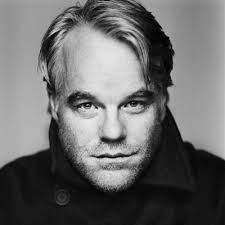Therapy
A Legacy of Phillip Seymour Hoffman
Professional prowess and private struggles are part of humanity.
Posted February 9, 2014
By Lee Katz Maxwell, LCSW

By Lee Katz Maxwell, LCSW
Along with many of my patients and colleagues, I have been preoccupied with the sudden passing of Phillip Seymour Hoffman. His personal struggles, juxtaposed with a singular talent and professional prowess, highlight the place of private pain in human experience, often a focus of attention in psychotherapy and psychoanalysis.
A patient came into my office saying she had something to talk about that she wanted desperately to avoid. She revealed it was her deep loneliness and feelings of shame and frustration because her attempts at dating have been unsuccessful since she divorced her husband 10 years ago. She feels there is something wrong with her. She is a successful, driven career woman who has many people reporting to her. She spoke of opening up once to two of her male colleagues at work about her dating situation and they were shocked, as she appeared to “have it all together.”
Later in the session she cried and talked about how upset she was by the death of Phillip Seymour Hoffman. We explored how his passing resonated for her and we found she identified with the split between his compelling and powerful work and how alone and private he was in his addiction.
Articles by the film critics AO Scott in the New York Times and Xan Brooks in The Guardian have helped articulate what has captured my attention about the very sad event of Hoffman’s passing. Brooks writes in The Guardian that since Hoffman was not a conventional leading man, viewers rarely chose to see a movie solely on the basis of his name, and “instead they stumbled upon him accidentally, like uncovering a diamond in the rough.”
This discovery felt like a private one to me and to others because something of ourselves, our private selves, was reflected in his performances. Brooks writes further, “In holding a mirror to the audience, he showed how our grubby urges and hopeless longing could be not just worthy of attention but sometimes actively glorious.”
Additionally, AO Scott writes of Hoffman’s work with the characters he plays, “The point was to make us believe and to recognize in them – in him – a truth about ourselves that we might otherwise have preferred to avoid. He had a rare ability to illuminate the varieties of human ugliness. No one ever did it so beautifully.”
The aspects of ourselves he reflected are what I feel privileged to be able to explore with my patients in therapy. Hoffman harbored darkness and trouble privately, while at the same time being in command of his powers in his public work life.
In therapy we try to bring forward, demystify, and make some sense of aspects of ourselves we don’t want to look at. We also try to understand the split between the unembraced aspects of our selves and those aspects with which we are more comfortable. Hoffman’s death is so poignant because it brings to light the gallantry with which so many of us attempt to live our lives in the public sphere, despite and along with private struggles.
Lee Katz Maxwell, LCSW, is Faculty, Supervisor and former Co-Director, One Year Program in Psychoanalytic Psychotherapy, Manhattan Institute For Psychoanalysis. She is in private practice in New York City.


